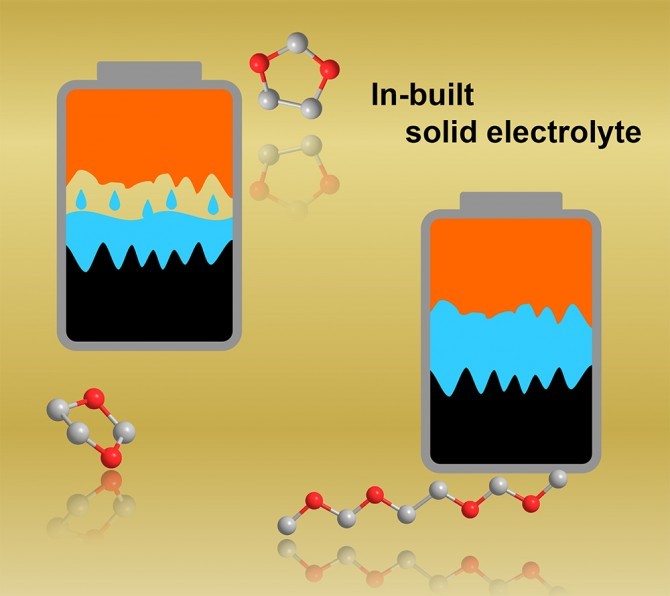A rash of smartphone fires in 2016 jolted consumer confidence in lithium-ion batteries, a technology that helped usher in modern portable electronics but has been plagued by safety concerns since it was introduced in the 1980s.
As interest in electric vehicles revs up, researchers and industry insiders are searching for improved rechargeable battery technology that can safely and reliably power cars, autonomous vehicles, robotics, and other next-generation devices.
New Cornell research advances the design of solid-state batteries, a technology that is inherently safer and more energy-dense than today’s lithium-ion batteries, which rely on flammable liquid electrolytes for fast transfer of chemical energy stored in molecular bonds to electricity. By starting with liquid electrolytes and then transforming them into solid polymers inside the electrochemical cell, the researchers take advantage of both liquid and solid properties to overcome key limitations in current battery designs.
The key insight is the introduction of special molecules capable of initiating polymerization inside the electrochemical cell, without compromising other functions of the cell. If the electrolyte is a cyclic ether, the initiator can be designed to rip open the ring, producing reactive monomer strands that bond together to create long chain-like molecules with essentially the same chemistry as the ether.
Beyond their relevance for improving battery safety, solid-state electrolytes are also beneficial for enabling next-generation batteries that utilize metals, including lithium and aluminum, as anodes for achieving far more energy storage than is possible in today’s state-of-the-art battery technology. In this context, the solid-state electrolyte prevents the metal from forming dendrites, a phenomenon that can short circuit a battery and lead to overheating and failure.
Despite the perceived advantages of solid-state batteries, industry attempts to produce them at a large scale have encountered setbacks. The Cornell researchers’ findings could lead to the development of practical solid-state batteries with extended life.
Source: http://news.cornell.edu/stories/2019/03/advances-point-way-smaller-safer-batteries

